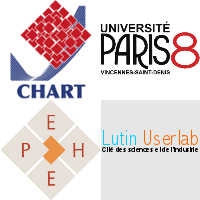International Seminar
“Paradigms in the social sciences – present and future”
03.12.2014
Scope: Very often the researcher is interested in determining laws of functioning of a research object. To achieve this he uses a variety of object analysis. Depending on preference, the researcher may apply a naturalistic, system or reductive approach. A common feature of all of these approaches is to replace the subject of study by a model that allows for an explanation of the essential characteristics of the research object. For various reasons any such model is simplification of the reality. Analyzing the current trends of social research is necessary to introduce new paradigms allowing to take into account the dynamics of the development of society. The of this seminar is to provide an accessible introduction to new methodological trends used in pedagogy, psychology, sociology and to help researchers, Ph.D. students and students to use them.
1. Anna Kieszkowska*
“Perspektywy paradygmatyczne i metodologiczne w badaniach społecznych.’’
*Instytut Pedagogiki i Psychologii, UJK w Kielcach, Kielce, Poland.
2. Jean Baratgin*, Cruz, N & Jamet, F.
“New Psychological Paradigm for reasoning: A Finettian approach ”
*Université Paris 8, CHArt – Cognitions Humaines & Artificielle EA 4004, Université de Paris 8 & EPHE, Paris. France.
3. Soledad Quero*
“Butler system”
*University Jaume I in Castelló, Spain.
4. Frank Jamet* & Baratgin, J.
“Schooling of pupils in special educational needs: the French model”
“Piaget and his work”
*Université de Cergy-Pontoise, CHArt – Cognitions Humaines & Artificielle EA 4004, Université de Paris 8 & EPHE. Paris, France.
5. Justyna Dobrołowicz*
“Paradygmat interpretatywny w jakościowych badaniach społecznych”
*Instytut Pedagogiki i Psychologii, UJK w Kielcach.
6. Frank Jamet* & Baratgin, J.
“Piaget and his work”
*Université de Cergy-Pontoise, CHArt – Cognitions Humaines & Artificielle EA 4004, Université de Paris 8 & EPHE. Paris, France.
7. Darya Fiatova*
“Synteza modeli procesów społecznych w warunkach niekreśloności”
*Instytut Pedagogiki i Psychologii, UJK w Kielcach, Kielce, Poland
8. Charles El-Nouty*
“On sample selection”
*Université Paris 13, LAGA. Villetaneuse, France.
9. Roberto Vardisio*
“Digital maturity”
*Entropy Knowledge Network, Rome, Italy.

